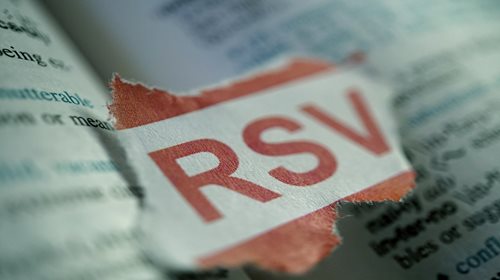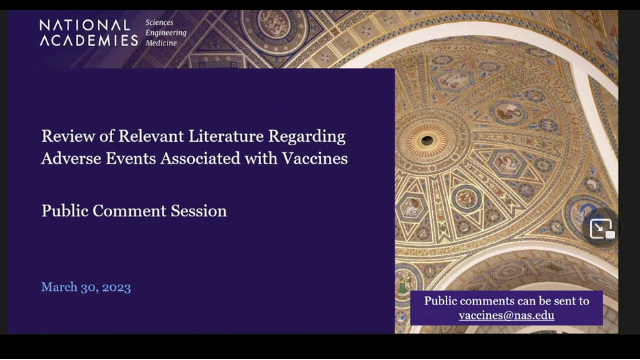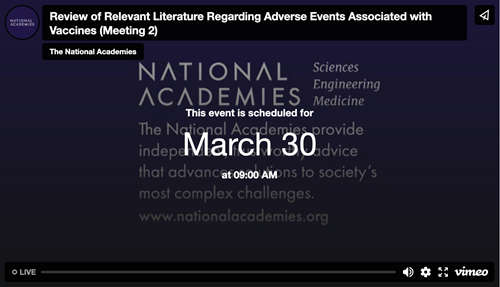Every Christmas and New Year, when I give thanks for the people who have blessed my life, I remember the mothers and fathers of severely vaccine injured children, who have taught me the most about love and courage. I know that my son, Chris, who developed brain inflammation within hours of his fourth DPT shot in 1980, could have been hurt so much worse.
Chris’s vaccine reaction at two and a half years old left him with milder forms of brain dysfunction - multiple learning disabilities and attention deficit disorder - but he and I both understand that he could have suffered medication resistant seizures, autism, profound mental retardation, or he could have died that day. So when I meet parents, whose children have died or are more seriously affected, I always wonder what kind of mother I would have been and what kind of choices I would have made if Chris’s brain inflammation following his DPT vaccination had been much more severe.
This past fall, my husband, Paul Arthur, and I traveled to a family wedding in New England and, on the way, we stopped in Connecticut to visit Kim and Mark Stagliano and their three daughters, Mia, Gianna, and Bella, who have autism. Kim is the managing editor of Age of Autism and the author of a new book, All I Can Handle: I’m No Mother Teresa. Like Kim’s fascinating, irreverent, often touching book that I could not put down, the time I shared with Kim and her family was a reminder that great courage is often defined by great love.
How many mothers and fathers with healthy preteen and teenage children can imagine what it is like to spend every waking (and sleeping) moment helping their children navigate the smallest details of life? How many can imagine doing that with joy and not despair; with purpose and not resignation; with a sense of humor and not bitterness? It is hard to imagine what we would do if we were responsible for raising not one or two, but three children with autism spectrum disorder, the kind of brain and immune system dysfunction that has exploded among American children in the past three decades and now affects 1 in 110 of them.
When Kim and Mark welcomed us into their warm, inviting home in Trumbull, Connecticut, we soon felt like we were part of their lively Irish-Italian family. Over a home-cooked lunch, we laughed a lot and talked about how they met; their early days as newlyweds; and when Mia, their first daughter, was born in 1994. Then Kim told the all-too familiar story I have heard so many times before: how she took a perfectly healthy baby into the pediatrician, where multiple vaccines were given at once, and everything changed.
In Mia's case, her head started to swell after her first round of vaccinations at two months old; and it became more misshapen after the second round of vaccinations at four months old; and, by the time Mia was six months old, the doctor was worried about Mia's head size but still gave her another round of vaccinations. By nine months, Mia was showing signs of brain dysfunction that would eventually be diagnosed as "autism."
What is it about doctors not understanding that the first vaccine – smallpox – and every vaccine created since smallpox vaccine has had the ability to cause brain inflammation followed by a range of mild to severe chronic brain dysfunction? Why don’t doctors know that it is very risky to give more vaccines to a baby if the baby is getting sicker and regressing after each round of vaccines? Why do doctors unreasonably assume that every vaccine is safe for every person rather than understanding that every vaccine carries a risk that can be greater for some than others?
Kim and Mark talked about their ups and downs, the adventures and near-misses, of raising three daughters with autism. They talked about their faith and their determination to never give up searching for ways to help their girls learn, grow and heal. I found myself waiting for the inevitable sadness for “what might have been” to emerge during our conversation but it never did. Then I realized that this was a man and woman, a mother and father, who had chosen to rise above “what might have been” and had moved on to exploring and celebrating “what can be.”
When it was time for the special ed buses to arrive, we waited outside as, one by one, the girls got off: I met the stunning 16 year old Mia, who has big blue eyes just like Kim’s and loves to watch Sesame Street on the computer; and cute, bubbly 14 year old Gianna, who never stops moving and lights up a room with her bright smile; and the pensive, dreamy 10 year old Bella, who is fascinated with running water and struggles to communicate.
I watched Kim patiently and resolutely juggle the whirlwind of after-school activity with Mia and Gianna, while Mark rushed upstairs to rescue the flooded upstairs bathroom from Bella, and I was spellbound by the symphony of controlled chaos. All through it, I could feel how genuinely happy these three girls with autism are because they know how much they are loved.
But I could not help think about what could have been. The thought of what could have been took my breath away.
Why some people face adversity with love, faith and courage, while others do not, is an age-old question. Kim Stagliano, with her remarkable husband by her side, is a very human woman who may be no Mother Teresa, but has chosen to face adversity with the kind of strength and good humor that we all want to believe we have inside of us. Her fearless, funny autobiography is not just for families raising children with autism. It is a book that everybody should read because it allows us to imagine that we could do it, too.
You can get a copy of Kim’s new book, All I Can Handle: I’m No Mother Teresa by going to the website of the National Vaccine Information Center and ordering through Amazon.com, which helps support NVIC’s public service programs. And while you visit our website, please stay for a while and learn more about how to prevent vaccine reactions to help protect the health of those you love.
During this holiday season, in memory of the many families across America, who are meeting the challenges of raising vaccine injured children with hope, and for a healthier future for all children: Merry Christmas and may you have many blessings to count in the New Year.









Leave a comment
Your email address will not be published. Required fields are marked with an *